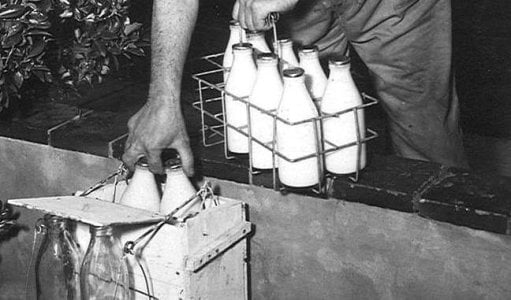Report reveals truth about toxic chemicals in household products’ packaging
By
Seia Ibanez
- Replies 21
As we navigate the aisles of our local supermarkets, our eyes are often drawn to the nutritional labels on food products, scrutinising the levels of sugar, salt, and preservatives.
However, a recent study has revealed a hidden danger that lurks not within the food itself but in the very packaging that encases it.
This danger comes in the form of toxic chemicals that manufacturers are not required to disclose and which can migrate into our bodies, potentially causing illnesses at every stage of human life.
The study, conducted by the University of Adelaide's Joanna Briggs Institute (JBI) and the Minderoo Foundation, founded by mining billionaire Andrew Forrest, examined thousands of chemicals that seep out of the plastics we come into contact with daily.
The research, published in the Annals of Global Health journal, synthesised the findings of 52 studies involving over 1.5 million participants—including infants, children, adults, and pregnant women—and painted a concerning picture of our exposure to these substances.

Minderoo’s Head of Plastics and Human Health, Professor Sarah Dunlop, spoke about the pervasive nature of these chemicals.
'It’s all around us. Plastic is an incredible success story, and it’s very convenient, but toxic chemicals are in it, and they get into us,' she said.
'It’s a form of toxic trespass. We didn’t ask for them to be in us, and yet we’re caught in this convenience cycle. But it could be death by a thousand conveniences.'
The problem is compounded by the sheer number of chemicals used in manufacturing, with new ones constantly being introduced.
Dunlop argued that there is a lack of transparency that prevents consumers from making informed choices.
‘At the moment, we are generally doing studies to look for harm in plastics after market release. Then we try to regulate it, so they put in a substitution and dearie me, we have to do the same thing all over again,’ she said.
‘I call it chemical Whac-A-Mole.’
The study's findings are alarming. Of the 16,000 chemicals regularly used in plastic production, only about 4,000 have been thoroughly studied.
The chemicals examined in the research—including Bisphenols, Phthalates, PBDE, PCBs, and PFAS—have been linked to many health issues.
These range from endometriosis and polycystic ovarian syndrome in women to sperm concentration and DNA damage in men.
Children are not spared, with associations found between chemical exposure and IQ loss, asthma, Type II diabetes, obesity, and cardiovascular disease.
Associate Professor Edoardo Aromataris from JBI emphasised that none of the plastic-associated chemicals they studied could be considered safe, with each chemical class linked to multiple harmful health effects.
‘None of the plastic-associated chemicals examined in the umbrella review can be considered safe, with multiple harmful health effects linked to each chemical class,’ he said.
So, what can be done about this plastic problem?
The Minderoo Foundation, which campaigns against the expansion of fossil fuels and for a Global Plastics Treaty, believed that the responsibility should not fall solely on consumers.
Instead, a comprehensive international regulatory approach is needed, similar to the management of mercury, which has been effectively controlled through international treaties.
‘Once upon a time, mercury was pretty ubiquitous, but then the health effects became widely understood, and the treaty was put in place. And it's now been effectively controlled, and the risk has been minimised,’ Minderoo Foundation Director Jay Weatherill said.
‘Obviously, it’s a much bigger and more complex process for plastics.’
The stalled negotiations for a Global Plastics Treaty, which will resume in Korea in November, highlight the challenges ahead.
The United States, Saudi Arabia, and China have shown a preference for focusing on recycling and packaging design rather than mandating a reduction in plastic use.
 Have you taken steps to reduce your exposure to plastics and their associated chemicals? What changes would you like to see in the way products are packaged and regulated? Share your thoughts with us in the comments below!
Have you taken steps to reduce your exposure to plastics and their associated chemicals? What changes would you like to see in the way products are packaged and regulated? Share your thoughts with us in the comments below!
However, a recent study has revealed a hidden danger that lurks not within the food itself but in the very packaging that encases it.
This danger comes in the form of toxic chemicals that manufacturers are not required to disclose and which can migrate into our bodies, potentially causing illnesses at every stage of human life.
The study, conducted by the University of Adelaide's Joanna Briggs Institute (JBI) and the Minderoo Foundation, founded by mining billionaire Andrew Forrest, examined thousands of chemicals that seep out of the plastics we come into contact with daily.
The research, published in the Annals of Global Health journal, synthesised the findings of 52 studies involving over 1.5 million participants—including infants, children, adults, and pregnant women—and painted a concerning picture of our exposure to these substances.

The new report linked plastic-related chemicals to health conditions, including diabetes and asthma. Credit: Shutterstock
Minderoo’s Head of Plastics and Human Health, Professor Sarah Dunlop, spoke about the pervasive nature of these chemicals.
'It’s all around us. Plastic is an incredible success story, and it’s very convenient, but toxic chemicals are in it, and they get into us,' she said.
'It’s a form of toxic trespass. We didn’t ask for them to be in us, and yet we’re caught in this convenience cycle. But it could be death by a thousand conveniences.'
The problem is compounded by the sheer number of chemicals used in manufacturing, with new ones constantly being introduced.
Dunlop argued that there is a lack of transparency that prevents consumers from making informed choices.
‘At the moment, we are generally doing studies to look for harm in plastics after market release. Then we try to regulate it, so they put in a substitution and dearie me, we have to do the same thing all over again,’ she said.
‘I call it chemical Whac-A-Mole.’
The study's findings are alarming. Of the 16,000 chemicals regularly used in plastic production, only about 4,000 have been thoroughly studied.
The chemicals examined in the research—including Bisphenols, Phthalates, PBDE, PCBs, and PFAS—have been linked to many health issues.
These range from endometriosis and polycystic ovarian syndrome in women to sperm concentration and DNA damage in men.
Children are not spared, with associations found between chemical exposure and IQ loss, asthma, Type II diabetes, obesity, and cardiovascular disease.
Associate Professor Edoardo Aromataris from JBI emphasised that none of the plastic-associated chemicals they studied could be considered safe, with each chemical class linked to multiple harmful health effects.
‘None of the plastic-associated chemicals examined in the umbrella review can be considered safe, with multiple harmful health effects linked to each chemical class,’ he said.
So, what can be done about this plastic problem?
The Minderoo Foundation, which campaigns against the expansion of fossil fuels and for a Global Plastics Treaty, believed that the responsibility should not fall solely on consumers.
Instead, a comprehensive international regulatory approach is needed, similar to the management of mercury, which has been effectively controlled through international treaties.
‘Once upon a time, mercury was pretty ubiquitous, but then the health effects became widely understood, and the treaty was put in place. And it's now been effectively controlled, and the risk has been minimised,’ Minderoo Foundation Director Jay Weatherill said.
‘Obviously, it’s a much bigger and more complex process for plastics.’
The stalled negotiations for a Global Plastics Treaty, which will resume in Korea in November, highlight the challenges ahead.
The United States, Saudi Arabia, and China have shown a preference for focusing on recycling and packaging design rather than mandating a reduction in plastic use.
Key Takeaways
- A new study by the University of Adelaide's Joanna Briggs Institute and Minderoo Foundation highlighted the presence of harmful chemicals migrating from plastics into our bodies, potentially causing illness at various life stages.
- Research indicated thousands of chemicals are used in plastic production, with only around 4,000 thoroughly studied, leading to concerns over unreported health impacts across the human lifecycle.
- Links have been found between plastic-associated chemicals and several health issues, such as endometriosis, sperm quality issues, IQ loss in children, and various chronic diseases.
- Amid stalled Global Plastics Treaty negotiations, the Minderoo Foundation advocated for an international regulatory framework, arguing against placing the burden on consumers to address the issue of plastic pollution.










